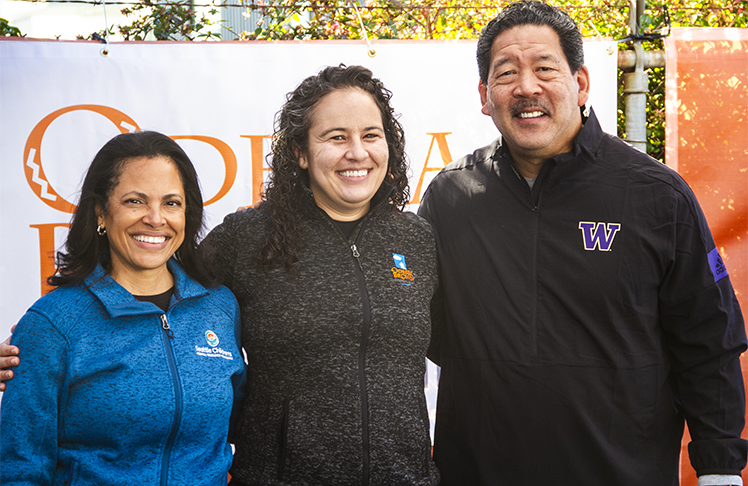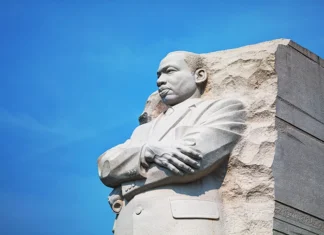
By Aaron Allen, The Seattle Medium
The Odessa Brown Children’s Clinic’s legacy has evolved once again. Last Saturday, the Clinic celebrated the location of its future new facility on the corner of 17th and Jackson with a Fall Homecoming celebration.
The outdoor event was filled with supporters, physicians, city leaders, families, and their children. With music in the background, food, and surprises, the event was optimistic, enthusiastic, and festive as Seattle’s weather provided a picturesque backdrop of sunshine and warmth on a fall October day.
“We are here to celebrate our homecoming, the return of our clinical services in the Central District,” says Dr. Shaquita Bell, Senior Medical Director for Odessa Brown Children’s Clinic. “We are super excited. We are welcoming kids and families to get information, have some Halloween fun, and really just talk about what it means to be in the community and how important it is for us to be here.”
Named after Odessa Brown, a fierce advocate for healthcare for the Central District’s Black community who persuaded the Model Cities Program commission to include a provision for a children’s clinic, the clinic has been serving the Central Area of Seattle since 1970.
Odessa Brown Children’s Clinic relocated to share the building on 21st and Yesler with the Carolyn Downs Family Medical Center in 1994.
The new location, with a budget ranging between $16-18 million, is scheduled to have its renovations complete by the beginning of 2025 and center its efforts on the mental health of children.
“This is important as we are trying to meet the needs of our Central District community,” says Jamie Phillips, Chief Operating Officer at Seattle Children’s Hospital. “We took focus groups and listened to what was needed, and one was around mental and behavioral health services. This building will focus on this service with the commitment of really enriching the necessary services for mental health that’s needed in our community.”
According to Mental Health America, the nation’s leading national nonprofit dedicated to the promotion of mental health, well-being, and illness prevention, 16.39 percent of youth ages 12-17 are reportedly suffering from at least one major depressive episode in the past year.
Youth can experience numerous hardships, for example, during the COVID-19 pandemic. According to the CDC’s Adolescent Behavior and Experiences Survey, 67 of U.S. high school students reported that schoolwork was more difficult, 55 percent experienced some emotional abuse in the home, 11 percent experienced physical abuse, and 24 percent reported they didn’t have enough food to eat during COVID, all of which can have detrimental effects on mental health.
“The big focus is going to be on expanding our ability to serve the mental health needs of our children and community,” says Bell. “What we know is that our youth are in a mental health crisis, that our children and our young adults need help in their emotional and mental well-being.”
Seattle Mayor Bruce Harrell, who also attended the event, talked about the importance of maintaining legacy and the importance of healthcare in underrepresented and underserved communities.
“This event symbolizes our community,” says Harrell. “By that, I am talking about underrepresented communities, the Black community, Brown communities, people from the Central District, however you want to define it. In your definition, we are not going anywhere, and we are trying to build communities, build relationships. Create health outcomes that we can be proud of.”
“We realize that there are health disparities, and Odessa Brown represents the legacy, the commitment of our community to center around health and trauma treatment, intervention, all of the good things we want for our community. And that is why I am here, and this is why I am supporting such a great cause,” concluded Harrell.



